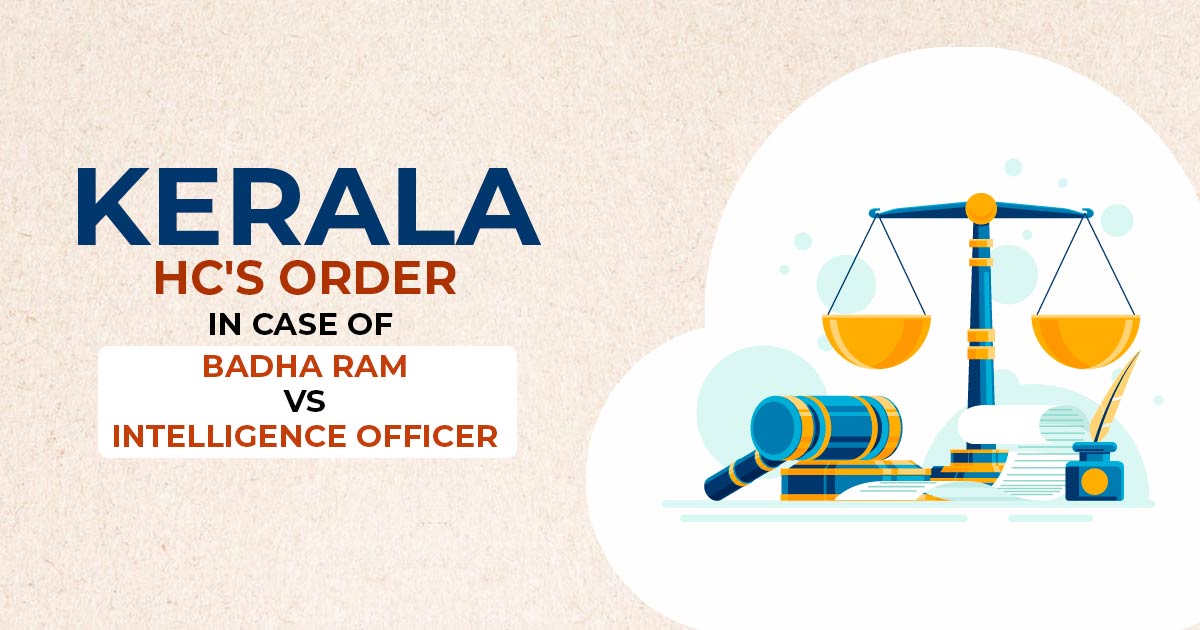
The Kerala High Court clarified that officials are authorized to use their power of arrest according to Section 69 of the Kerala State Goods and Services Act, 2017 if they have reasonable grounds to believe that an offence under Section 132 has occurred and that custodial interrogation is necessary.
Section 132 (1) outlines penalties for specific violations under the Act. The accusation against the accused, a GST dealer, involves supplying goods without issuing invoices and allegedly evading a substantial amount of taxes, estimated at 6.4 crores since 2018.
Justice Mohammed Nias C.P. emphasized that the accused could indeed be arrested to prevent potential tampering with evidence, intimidation of witnesses, or interference that might obstruct a thorough investigation.
“The power to arrest under Section 69 can be invoked if the Commissioner has a reason to believe that the person has committed offences that are prescribed and which are punishable under Section 132 of the CGST Act, 2017. Thus, the reference to Section 132 in Section 69 is only to indicate the nature of the offences based on which reasonable belief is found and recorded by the Commissioner to pass an order for arrest…… But, once the ingredients of the offence are made out, the Commissioner or the competent authority can determine if the offender is to be arrested or not.”
Justice Nias denied bail to the accused, citing an accusation of evading taxes exceeding 6.5 crores and highlighting the necessity for a comprehensive investigation.
Related:- Kerala HC Permits GSTR-3B Rectification as ITC Claimed as IGST Instead of SGST and CGST
Goods and Services Tax Background Facts
The petitioner stood as the lone accused in a serious, non-bailable offence as per Section 132 (1) of the Act, involving the wholesale distribution of mobile accessories and electronic items under the GST Act. The items supplied by the petitioner fell under an 18% tax bracket.
Advocate C.S. Manilal and S. Nidheesh, representing the petitioners, contended that the accusation against their client was flawed, as it included the income of his separate GST-registered brothers.
They emphasized that police raids had already taken place at the petitioner’s residence, resulting in the seizure of documents and electronic records, negating the necessity for further custodial interrogation. They also highlighted that the remand report did not indicate the indispensability of the petitioner’s continued custody.
Read Also:- Center May Revoke Offences For GST Evasion Below INR 3 Crore in India
Relying on precedents like Jayachandran Alloys (P) Ltd. v. Superintendent of GST & C. Ex., Salem (2019) and Jagdish Arora and others v. Union of India (2020), they argued that the power of arrest should only come into play post-assessment, not before.
Contrarily, Mohamed Rafiq, the Special Government Pleader for Taxes, opposed the bail plea. He contended that an extensive investigation was imperative, citing the police’s discovery of substantial tax evasion. Rafiq stressed that the inquiry had unveiled significant tax irregularities, warranting a thorough investigation.
The Court observed that the petitioner had tampered with evidence and attempted to influence witnesses in the ongoing case. Additionally, it acknowledged that the investigation remained at a preliminary stage.
Rejecting the argument that arrest should only occur post-assessment, the Court pointed out the absence of a correlation between the list of offences under GST Section 132(1) and the assessment process. It also highlighted the petitioner’s failure to offer to compound the offence, pay the due tax for such compounding, or admit liability.
In this instance, the Court deemed the continued custody of the petitioner essential for a thorough investigation and to prevent potential evidence tampering. It affirmed that if a case were established under Section 132(1), officials held the authority to exercise arrest powers.
Important:- Kerala HC: Not Legal to Charge GST Interest for Failing to File GSTR-3B After GSTN Cancellation
“The contra view taken by the Madras High Court in Jayachandran Alloys’s case (supra) and also followed by the Madhya Pradesh High Court in Jagdish Arora’s case (supra) cannot be treated as good law.”, the Court stated while noting that power to arrest can be invoked on fulfilling other condition precedents set out in Section 132.
Hence, the Court denied the bail request due to the ongoing investigation.
| Case Title | Badha Ram v/s Intelligence Officer |
| Case Number | BAIL APPL. NO. 10492 OF 2023 |
| Date | 21.11.2023 |
| Petitioner/sole Accused | Advs. C.S.Manilal, S.Nidheesh |
| Counsel For Respondent | Intelligence Officer, Sri.mohamed Rafiq, SPL. Govt. Pleader, Taxes Sri. M.C. Ashi |
| Kerala High Court | Read Order |